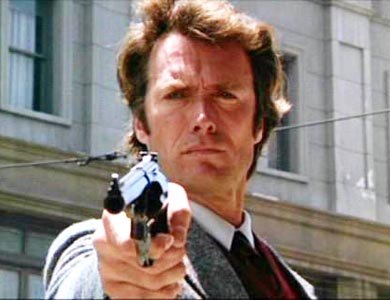These days, anything short of a Baz Luhrmann seizure constitutes a slow editing pace. I thought that’s why Dirty Harry (1971) seemed so sluggish when I watched it a couple of years ago with the kids on the 9’ screen in our basement. Clint Eastwood was, of course, imposing and iconic, but the film as a whole felt like an overwrought Quinn Martin production. The dated Lalo Schifrin score didn’t help.
Sunday the kids took me to a revival house screening of Harry. It played on a 40’ screen (as surely God intended). It was a completely different experience. More screen real estate translated into more places for the Scorpio killer to hide. The audience spent long seconds between cuts tensely searching for bad guys in the blackness made possible by the seventies’ faster film stocks.
Once again I learn what I should already know: size matters. iPhones, laptops, and cinema screens each have their own dynamics of composition and pacing. Those dynamics aren’t interchangeable.
Did I mention the kids chose Dirty Harry tickets as a Father’s Day present? It seems that more than once during their childhood, as one or the other of them teetered on the brink of mischief, they each remembered looking my way, daredevil eyes glinting. They recalled (as I did not) the threat of discipline in my standard response: “You’ve got to ask yourself one question: ‘Do I feel lucky?’ Well… do ya, punk?”



